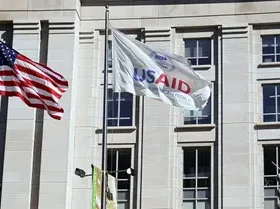
The United Nations announced that the global unemployment rate is projected to experience a slight increase in 2024.
Approximately two million additional workers are anticipated to be in search of employment during this period, leading to a rise in the global unemployment rate to 5.2 percent.
Expressing its concerns, the UN, through its labor division, the International Labour Organization, highlighted issues such as stagnant productivity, escalating inequalities, and the impact of inflation on disposable income.
These observations were presented in the World Employment and Social Outlook Trends report for 2024, released on Wednesday by the UN.
The report also emphasized that disposable incomes have decreased in the majority of G20 countries, and the erosion of living standards due to inflation is unlikely to be swiftly compensated.
“Furthermore, important differences persist between higher- and lower-income countries. While the jobs gap rate in 2023 was 8.2 percent in high-income countries, it stood at 20.5 percent in the low-income group.
“Similarly, while the 2023 unemployment rate persisted at 4.5 percent in high-income countries, it was 5.7 percent in low-income countries.
“Moreover, working poverty is likely to persist. Despite quickly declining after 2020, the number of workers living in extreme poverty (earning less than US$2.15 per person per day in purchasing power parity terms) grew by about 1 million in 2023. The number of workers living in moderate poverty (earning less than US$3.65 per day per person in PPP terms) increased by 8.4 million in 2023.”
READ ALSO: Maersk Imposes $150 Per TEU ‘Peak Season Surcharge’ on Nigeria-Bound Containers
The research examines the most recent developments in the labor market, encompassing aspects such as unemployment, job generation, labor force participation, and hours worked. It subsequently correlates these factors with their corresponding social implications.
In response to the findings, Gilbert Houngbo, the Chief of the International Labour Organization (ILO), expressed optimism, noting that the report highlights encouraging trends in data, particularly in terms of growth and unemployment.
“A deeper analysis reveals that labour market imbalances are growing and that, in the context of multiple and interacting global crises, this is eroding progress towards greater social justice,” Houngbo said.
“What is clear from this report is that the problems we face are too large and complex for any one group, country or region to solve alone. The policies and actions chosen need to be coordinated and mutually reinforcing, at both country and multilateral levels. What’s more, this coordination needs to extend to the allocation of financial and technological resources.
“A more effectively coordinated response will also help to put us on track to achieve both the UN Sustainable Development Goals and the commitments made at COP28 – which, encouragingly
and for the first time, included reference to the importance of labour rights, social dialogue, social protection and decent work in achieving the just transition we all need,” he added.








Leave a Reply